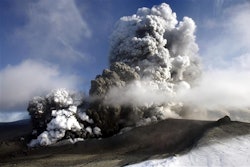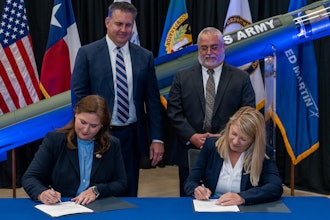With ISO 9001 and ISO 14001 currently being revised by ISO Technical Committees – Mike James, Managing Director of LRQA and David Lawson, LRQA Technical Director talked about the progress to date on both standards, as well as what the revisions could mean for the market at large.
Q1: David, could you explain why these standards are being revised?
Under the constitution of The International Organization for Standardization (ISO), management system standards (MSS) are nominally reviewed every five years. This on-going cycle is designed to ensure the applicability and relevance of International Standards, thereby helping to make industry more efficient and effective through their use to provide current specifications for products, services and good practice. Developed through global consensus, they help to break down barriers to international trade. It just so happens that the revision cycle has fallen on some of the world’s most popular standards, with both ISO 9001 (quality) and ISO 14001 (environmental) among those currently being revised.
The last few years has seen an increase in the number of management system and sector-specific standards covering a growing number of areas. From an initial base of quality, this has expanded to cover environment, health and safety, energy management, business continuity, and beyond. As the number of standards has grown, so has the trend towards integration.
Q2: Apart from the normal revision cycles, were there any other drivers for revision?
Many organisations now work with more than one management system standard and LRQA knows only too well such organisations are looking for increased efficiencies brought about by operating a combined or integrated management system and, where appropriate, having this integrated approach certified.
It has also been the case that the requirements within each of these varying standards often have the same intent expressed differently. This can result in requirements being interpreted differently, potentially leading to confusion and inconsistency in the implementation of different standards.
Overarching the normalised revision process, ISO identified the need to address this, leading to the drafting of ISO Guide 83, the fore-runner to what has now been formally adopted and published by ISO as Annex SL.
Q3: So what benefits does the adoption of Annex SL actually mean for the ISO Standard user?
Annex SL defines the framework for generic MSS so as to ensure that the text used is aligned to the extent that they have, where practical, identical clause titles, sequence of clauses, definitions and as much identical text as feasible. In a recent press statement, ISO commented “It will take a few years before all existing management system standards have been fully harmonized. However, there were an impressive number of standards that used the new format as it was being developed.”
For organisations there will initially be little change. However, in due course, it will influence and align the structure and content of existing management system standards as they go through their revision processes. It also means that, when any new standard is introduced, many aspects will be immediately familiar to the user with the emphasis on what is unique to the specific discipline.
Q4: Mike, do we know what this new framework will encompass?
Given that ISO adopted Annex SL back in 2012, coupled with the publication of new MSS using this revised structure (ISO 22301 – Business Continuity – being an example), LRQA believes that it is highly likely that the revised versions of all new ISO MSS will adhere to this framework and all current MSS will migrate at their next revision – including quality and environmental. The framework will have ten sections with wording being tailored to the intended users of the particular standard:
- Scope
- Normative references: Both of these sections will have wording that is specific to the Standard (including its intended outcome)
- Terms and definitions: This will reference the common terms and core definitions outlined in Annex SL as well as any which are specific solely to the relevant standard.
- Context of the organisation: This section will include requirements relating to understanding the organisation implementing the Standard, the needs and expectations of interested parties, the scope of its relevant standard and the relevant standard itself.
- Leadership: Top management leadership and commitment, the relevant standard policy, as well as organisational roles, responsibilities and authorities.
- Planning: Actions to address risks and opportunities, the relevant standard objectives and plans to achieve them.
- Support: Resources needed for the relevant standard, personnel competence and awareness, communication and documented information.
- Operation: Operational planning and control.
- Performance evaluation: Monitoring, measurement, analysis and evaluation, internal audit and management review.
- Improvement: Non-conformity, corrective action and continual improvement.
Q5: David, is LRQA involved in the ISO Standard Revisions process?
LRQA is no stranger to the current revision process being driven by ISO and is a major contributor to the development and improvement of standards and associated guidance in the fields of management systems and conformity assessment worldwide. As recognised voices in the industry – driven through our membership and Mike James’ chairmanship of the IIOC (Independent International Organisation for Certification), the global certification trade body – our experts are actively involved in the international technical committees for all three of the world’s leading MSS, specifically ISO 9001 (quality), ISO 14001 (environmental) and OHSAS 18001 (health and safety).
Q6: Can you share any timelines with us?
Clearly, there is a lot of media interest and market speculation on the ISO Standard revision process. LRQA is focused on the facts and as such, we know that both Environmental and Quality are at Committee Draft stage, with ISO elevating the status of ISO 9001:2015 to CD 30:20 on 4 June, meaning that it has gone to voting (with Environmental already having gone through an initial voting stage).
In terms of timelines, the dates are open to conjecture, but we are hopeful that ISO will reach agreement and formalisation during 2014/15 which could – specifically relating to ISO 9001 – see a final draft version (FDIS) being available during the latter part of 2014 with publication of the revised version of the Standard approximately a year later. Clearly this timeline may be subject to delay and date slippage, given the number of stakeholders involved. If we consider the last update to ISO 9001, it was scheduled to occur in 2005, but was only published in 2008, thereby given an indication on the movement of ‘stated deadlines’.
At LRQA we are committed to ensuring that we deliver the best possible solutions and services to our global client base in terms of seamless migration to the new standards and we will be updating our channels with relevant information as soon as it becomes available.
Q7: Mike, can you give us LRQA’s perspective on progress to date for the ISO Standard Revision Process and what this could mean for the market at large?
Given the continued growth in new standards, and knowing more are in the pipeline, LRQA welcomes this move by ISO to begin bringing together and aligning the key common elements of management systems.
It makes complete sense for all ISO MSS to be consistent and compatible. The adoption of Annex SL last year signifies the beginning of the end of the conflicts, duplication, confusion and misunderstanding from different MSS. In terms of the assessor development needs for Annex SL, we believe that LRQA has a head start due to our history and depth of experience in assessing the synergies between managing risk and assurance through the application of our unique assessment methodology – LRQA Business Assurance.
LRQA believe that this new MSS structure will enable our global auditor network to focus their own and their clients’ thinking on viewing organisations’ management systems holistically.
Established in 1985, Lloyd's Register Quality Assurance (LRQA), a member of the Lloyd's Register Group, is a leading global Business Assurance provider and a market leader in the provision of assessment, certification, verification, validation, training and customized solutions in environmental, quality, health and safety, corporate and social responsibility, sustainability, business continuity, supply chain assurance and security.
Learn more at www.lqrausa.com.























